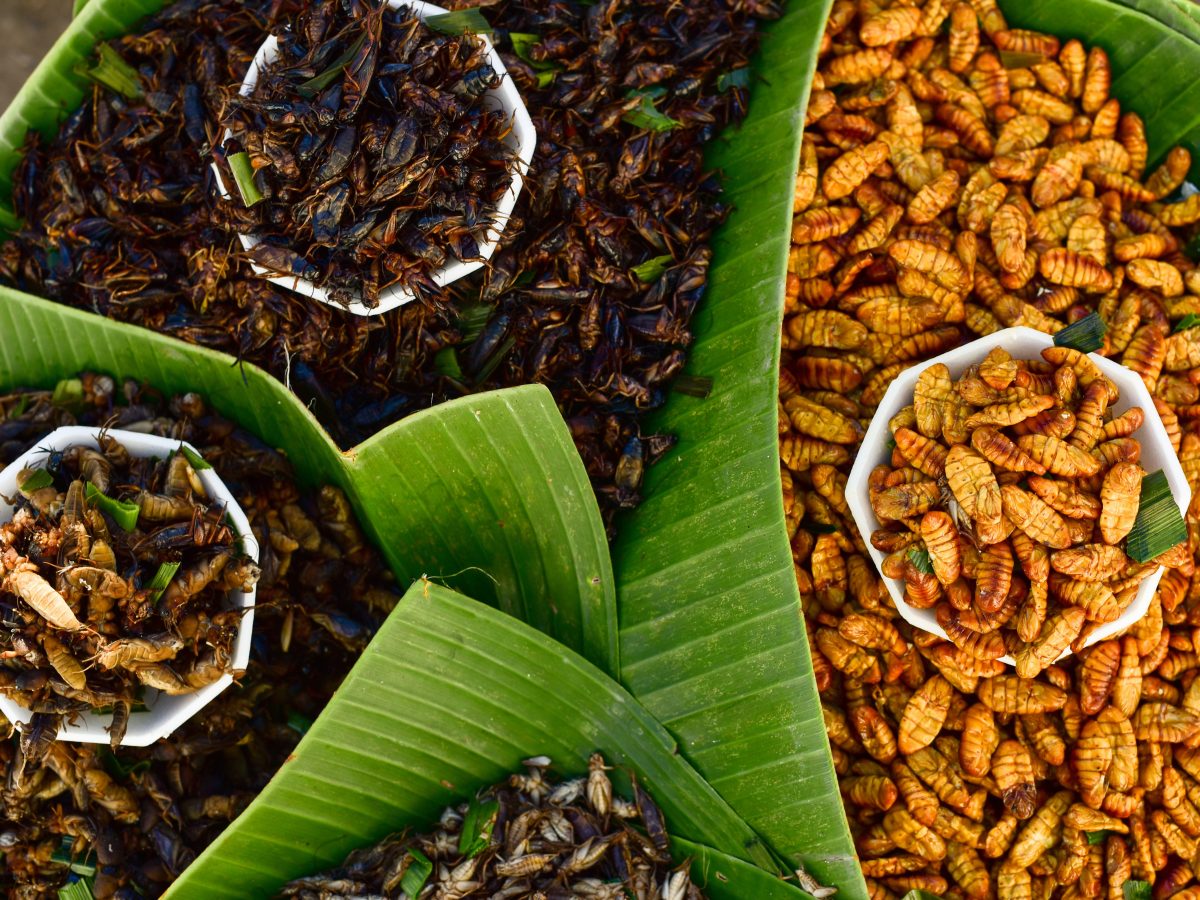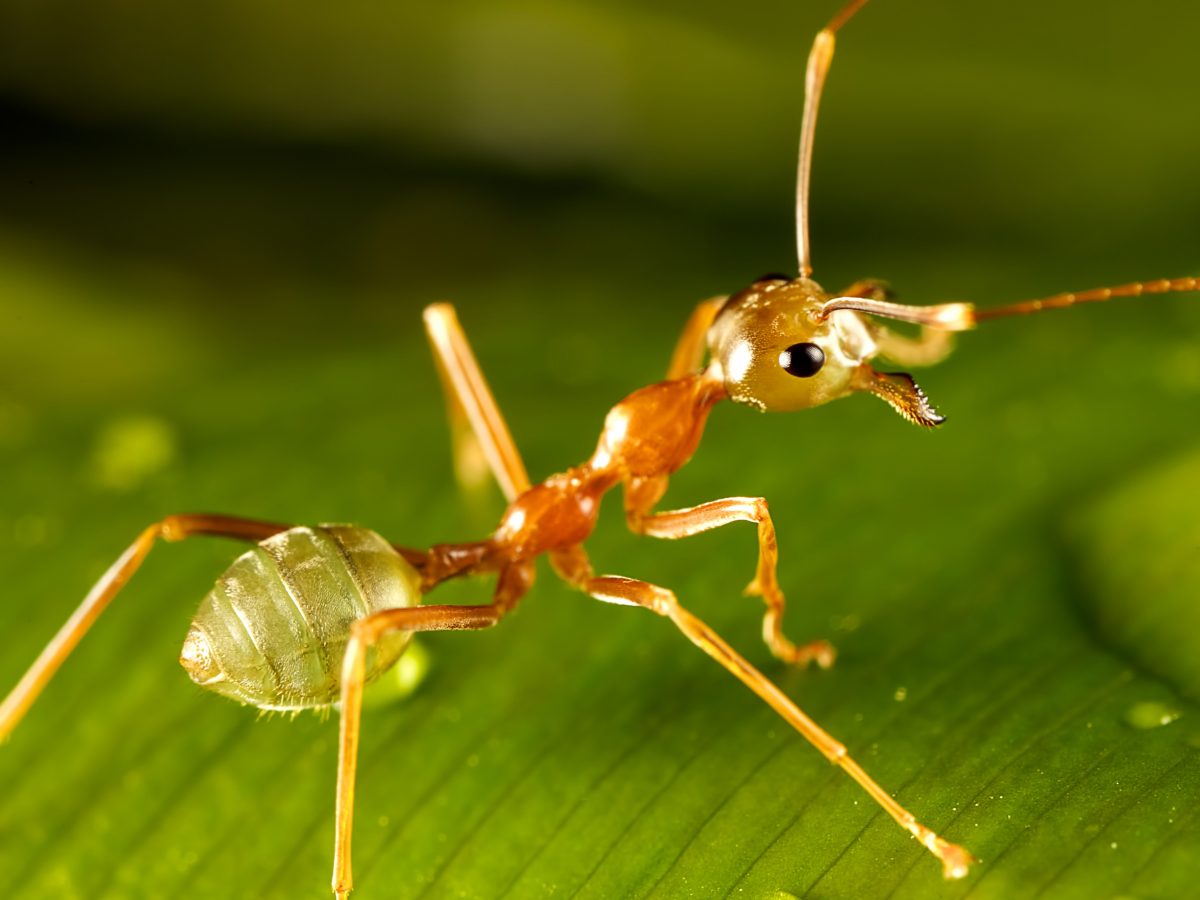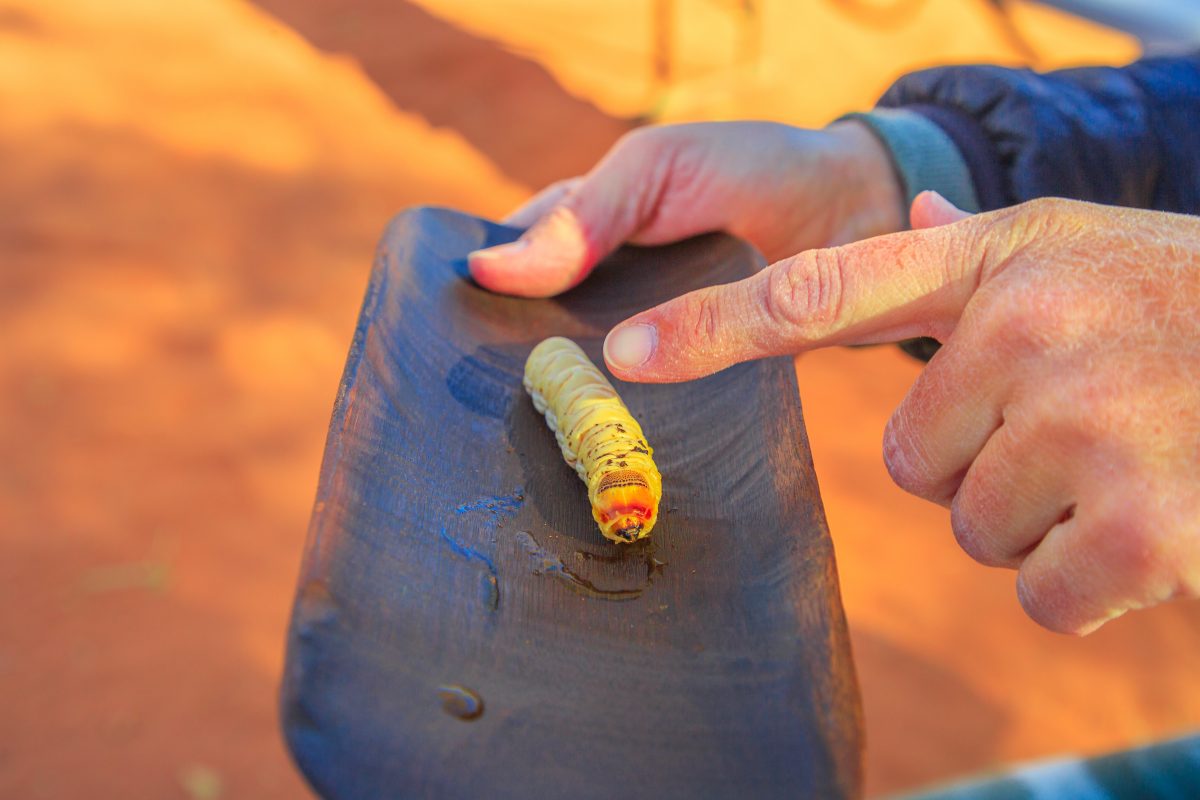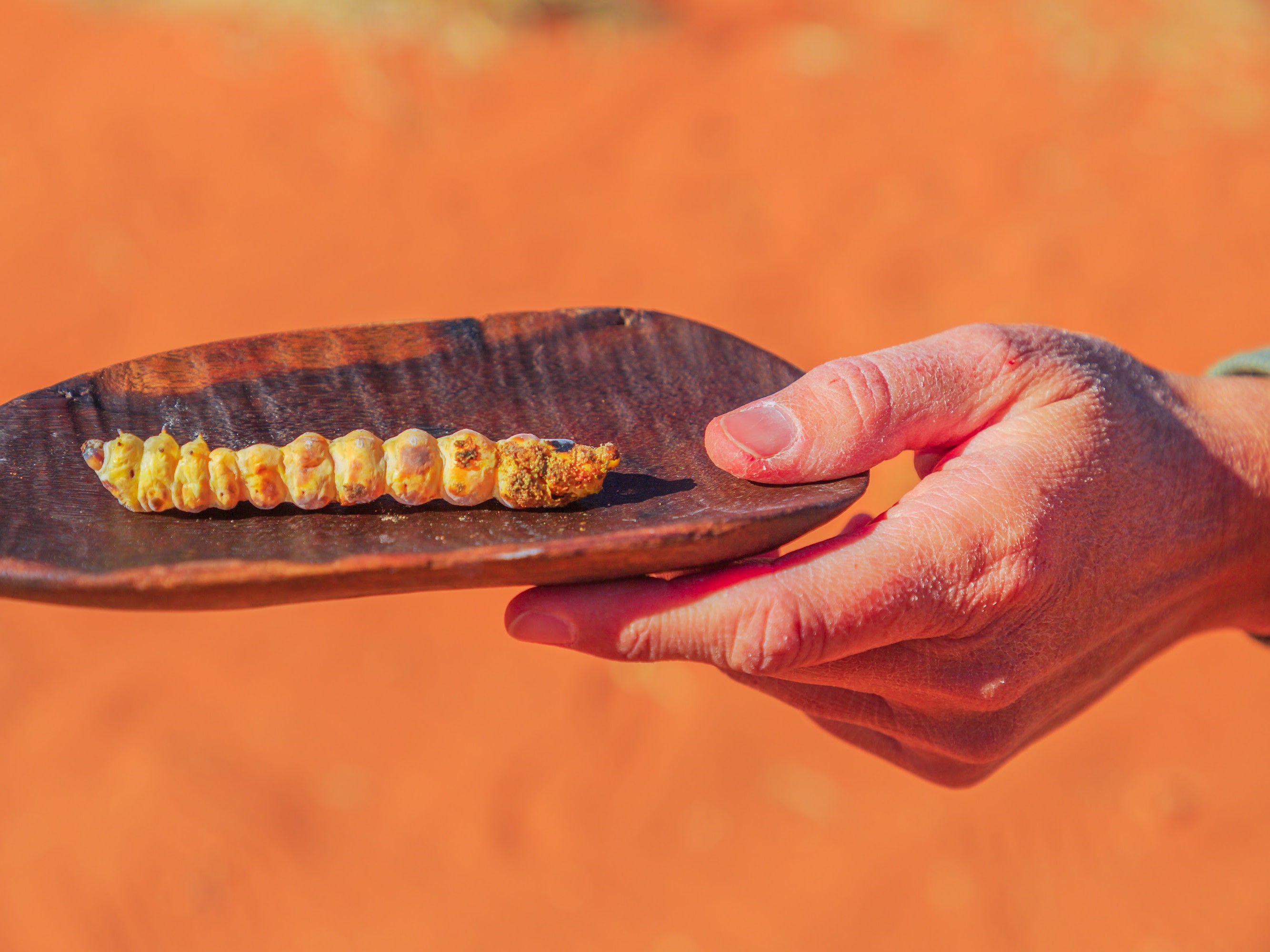Edible insects: A roadmap for the strategic growth of an emerging Australian industry, launched on Thursday 29 April, details a comprehensive plan for the emerging industry.
It explores the challenges and opportunities, cultural values, sustainability credentials and health outcomes of developing a commercially viable edible insect industry in Australia.
The new roadmap, co-funded by CSIRO and the Australian Government Department of Foreign Affairs and Trade (DFAT) through the Council on Australia Latin America Relations (COALAR), provides a framework for First Nations initiatives, start-ups, insect businesses, researchers, policymakers and community members interested in engaging with the industry.
The roadmap also sets out challenges that will need to be overcome, including issues of scaleability, consumer appetite and research opportunities, and provides strategies for tackling them, including the development of new products; farming innovations; and avenues of potential collaboration.
“The roadmap draws on the expertise of Australian and international scientists, Aboriginal and Torres Strait Islander peoples, insect farmers, food processing industry leaders and chefs, to set out the challenges and opportunities presented by one of the world’s richest sources of protein and other micronutrients,” CSIRO entomologist and report co-author Dr Bryan Lessard said.
Olympia Yarger, Chair of the Insect Protein Association of Australia, said the roadmap “provides meaningful steps forward for the guidance of new research and investment priorities that will enable insects to become a more sustainable and high-value part of the modern Australian diet”.
Here are six good reasons why this not-so-niche industry is worth taking seriously.

Fried insects on sale at a food stall in Thailand. Credit: Shutterstock
-
Insect protein is a fast-growing sector, set to reach $1.4B in value by 2023
The global edible insect industry is growing rapidly, with further expansion expected in coming years, said CSIRO researcher and report co-author Dr Rocio Ponce Reyes.
“The worldwide edible insect market is expected to reach AU$1.4 billion in value by 2023. Europe and the United States of America lead the western world market, with more than 400 edible-insect-related businesses in operation,” Dr Ponce Reyes said.
-
Insects are nutritious
“Insects have high-value nutritional profiles, and are rich in protein, omega-3 fatty acids, iron, zinc, folic acid and vitamins B12, C and E. They are also complementary to our existing diets because they are a healthy, environmentally friendly, and rich source of alternative proteins,” noted Dr Ponce Reyes.

Green tree ants, with their tangy, lemony flavour, are a favourite of the Kuku Yalanji people of the Daintree region of Far North Queensland. Credit: Paul Looyen/ Shutterstock
-
Insects are all around us
Australia has a high diversity of native insects, Dr Lessard said.
At least 60 native insect species are traditionally consumed by First Nations Peoples in Australia. Well-known Australian edible species include witjuti (also known as witchetty) grubs, bogong moths, ‘honeypot’ ants and green tree ants.
-
Insect farming is sustainable
Developing an edible-insect industry also makes environmental sense. “Commercial insect farming is considered to have a low environmental footprint, requiring minimal feed, water, energy, and land resources – factors of importance to the modern health and ethically-conscious consumer,” Dr Lessard noted.

The ‘witchetty’ grub (Endoxyla leucomochla) is a larvae that feeds on roots of the witchetty bush native to the Northern Territory. The protein-rich grubs are a food staple in the diets of many Australian First Nations Peoples. Credit: Benny Marty/ Shutterstock
-
Edible-insect enterprises could provide healthy incomes for First Nations peoples
CSIRO’s Dr Lessard said the report highlighted the importance of supporting and promoting First Nations-led enterprises.
“Working with First Nations enterprises, many species have the potential to be sustainably harvested or grown in low-impact farms, to be turned into new and delicious Australian foods for us and our pets,” he said.
-
An edible-insect industry provides opportunities for cross-cultural collaboration
It is hoped that the joint effort with COALAR will lead to greater collaboration between Australia and Latin American countries such as Mexico, where eating insects is more widespread. The roadmap, available in English and Spanish language versions, includes guidance for Spanish-speaking countries on how to develop local insect-protein industries.
COALAR-DFAT Board Member Natalie Collard said research into edible insects, and into developing insect-based products for domestic and export markets, was highly relevant in today’s world.
Not only are insects affordable, accessible and sustainable protein sources, Collard said; an edible-insect industry “has the potential to provide exciting trade opportunities and could lead to valuable economic outcomes”.

A spoonful of high-protein ‘bamboo worms’. Edible insects, enjoyed by people around the world from Asia to Latin America, provide opportunities for cross-cultural trade. Credit: Shutterstock
The broader picture: CSIRO’s Future Protein Mission
CSIRO has developed the roadmap as part of a broader research effort investigating alternative protein sources, taking place through its ongoing Future Protein Mission.
According to Professor Michelle Colgrave, CSIRO’s Future Protein Lead, the mission was focused on helping Australia capture a share of high-growth global protein markets, with the goal of growing Australia’s protein industry by $10 billion over five years, in line with the Australian Government’s goal to boost farmgate output to $100 billion by 2030.
“With the global population set to reach 9.7 billion by 2050, we will need to meet this demand for sustainable protein production by exploring diversified sources,” Professor Colgrave said.
“Alternative protein industries can play an important role in Australia, contributing to regional and national prosperity.
“At CSIRO, we’re researching plant-based protein, traditional protein sources, and emerging protein industries including edible insects,” Prof. Colgrave said.
Download the roadmap
‘Edible insects: A roadmap for the strategic growth of an emerging Australian industry’ is available in English and Spanish language versions. Download the roadmap here.
Source: CSIRO


